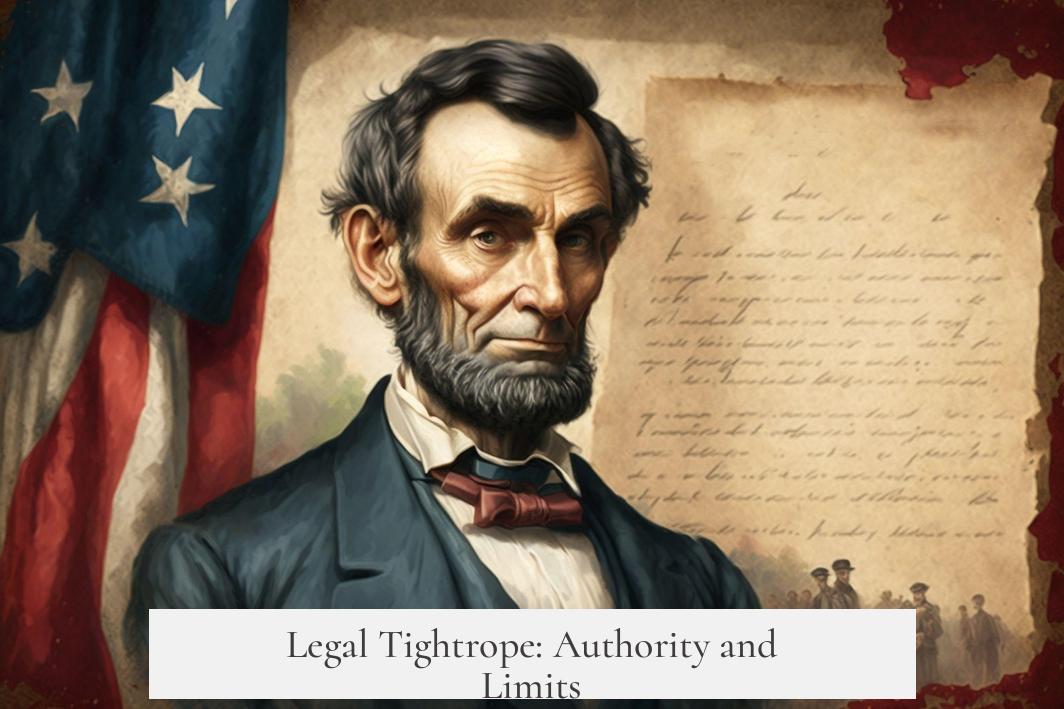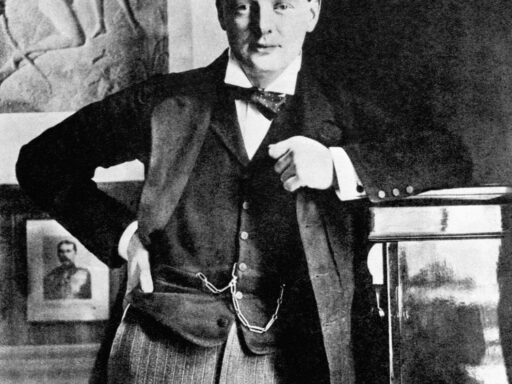Lincoln’s suspension of habeas corpus during the early Civil War was necessary for the Union effort, mainly to secure vital transportation routes and protect the capital. The suspension, though controversial, targeted specific threats that endangered troop movements and communication lines. This limited suspension leveraged presidential war powers amid Congressional recess, enabling swift action to preserve Union control in a volatile border state.
In April 1861, President Abraham Lincoln suspended the writ of habeas corpus from Washington, D.C. to Philadelphia. This action aimed to protect key railroad lines essential for moving Northern troops to defend Washington and to prevent Maryland, a border state with divided loyalties, from seceding. The suspension was focused on areas where public safety required it, primarily the railroads. At the time, Congress was not in session, leaving Lincoln to act unilaterally under his executive war powers. Immediate threats included sabotage and riots targeting rail lines, which could have isolated the Union capital or allowed Confederate forces to gain strategic advantages.
Maryland’s position was especially precarious. Governor Thomas Hicks later acknowledged that arrests of suspected secessionists playing a role in unrest saved Maryland from deeper destruction. The governor, however, reportedly sanctioned acts to prevent Union troop movements, including orders to destroy bridges and telegraph lines. Such efforts came from both civilian and police groups in Baltimore, underscoring local complicity. Baltimore’s rail junctions were critical links connecting Northern supply lines with Washington, meaning disruptions there severely threatened Union logistics.
The importance of Baltimore and Maryland went beyond geography. The city sat at the crossroads of northern railroads reaching Washington from New York, Philadelphia, and Harrisburg. With substantial secessionist sympathies within Maryland, the Union risked losing control of this crucial corridor. Indeed, in mid-April 1861, coordinated sabotage burned railroad bridges on routes leading into Baltimore, cutting off Washington from the North for several days. Such organized interference by pro-Confederate agents and sympathetic officials made martial law and the suspension of habeas corpus a practical response. Without it, Union troop deployments to defend the capital could have been crippled.
Legally, Lincoln’s actions rested on his constitutional authority as commander-in-chief during rebellion, invoking Article II powers to maintain the Union. The Supreme Court, through Chief Justice Roger Taney in Ex parte Merryman, challenged the president’s authority, arguing military arrests without judicial review were illegal. Nevertheless, Congress had not granted any suspension powers, and it was out of session. Lincoln’s position stressed necessity—that extraordinary threats justified immediate measures to preserve the nation, even if constitutional questions remained unsettled. Later, the Court ruled in Ex parte Milligan (1866) that military tribunals could not replace civil courts where courts were open.
The suspension of habeas corpus facilitated decisive military and civil actions in Baltimore. General Benjamin Butler seized the city in May 1861 to secure troop movement, imposing martial law. He detained city officials, legislators, and newspaper editors suspected of Confederate sympathies, including John Merryman. Such detentions underlined the administration’s effort to neutralize internal threats that could destabilize Union defenses.
| Aspect | Detail |
|---|---|
| Reason for suspension | Protect rail lines and Washington from sabotage and secessionist threats |
| Date of initial suspension | April 27, 1861 |
| Main affected state | Maryland (especially Baltimore) |
| Legal context | Congress not in session; presidential war powers invoked |
| Key court case | Ex parte Merryman (1861) and Ex parte Milligan (1866) |
| Military enforcement | Martial law declared; arrests of suspected Confederate sympathizers |
In sum, the suspension was a tactical response to an immediate threat undermining the Union war effort. Lincoln acted without Congressional approval but within the context of an insurrection challenging the nation’s survival. The suspension’s limited geographic scope aligned with the importance of maintaining secure transit for troops and supplies. The actions taken helped prevent Maryland from tipping toward the Confederacy and ensured the capital remained defendable.
- Lincoln suspended habeas corpus to secure critical railroads and defend Washington, D.C.
- Maryland’s local authorities and citizens actively sabotaged Union transportation lines.
- The suspension was limited, focused on areas of military importance during Congressional recess.
- The legality of the suspension was questioned but grounded in presidential war powers.
- Martial law in Baltimore allowed arrests of suspected Confederate sympathizers.
- The suspension was necessary to maintain Union troop movements and border state loyalty.
Was Lincoln’s Suspension of Habeas Corpus Necessary for the Union Effort?

Absolutely yes—Lincoln’s decision to suspend habeas corpus in 1861 was a critical move essential for preserving the Union during its most vulnerable hours. But why? What made this suspension not only justifiable but arguably indispensable? Let’s unpack the story behind this controversial wartime measure, with all its legal twists, strategic maneuvers, and political drama, to understand its necessity in the Union’s effort.
Lincoln’s Emergency Brake: Suspension of Habeas Corpus
On April 27, 1861, barely a month after the Civil War erupted, President Lincoln used his executive authority to suspend habeas corpus between Washington, D.C., and Philadelphia. That’s a fancy way of saying: people suspected of threatening public order could be arrested and held without immediate charge—or a court hearing. Harsh? Maybe. But doing nothing risked losing critical rail routes and the capital itself.
Here’s the catch: Congress wasn’t in session until July. Lincoln had no backup legislative approval. So he acted alone, using his powers as Commander in Chief to protect the Union Army’s logistics. Railroads were the arteries fueling the Northern war machine. If disrupted, troops couldn’t move south to defend Washington.
Riots had already erupted attempting to stop troop movement, especially in Maryland—a border state caught ideologically and geographically between North and South. To secure troops’ passage, Lincoln ordered General Winfield Scott to enforce the suspension wherever military lines near Washington or Baltimore faced threats.
Why Maryland Was the Union’s Achilles’ Heel
Imagine Maryland as a key bridge. Lose control, and the Union’s heart could stop beating. Maryland wasn’t just a problem—it was the linchpin holding the North’s defenses together.
The city of Baltimore, home to crucial railroad junctions from New York, Philadelphia, and Harrisburg, was rife with secessionist sympathies. Pro-Confederate groups and even some local police men sabotaged rail lines, burning bridges and cutting telegraph lines. Plus, Governor Thomas Hicks allegedly ordered actions — like blowing up rail bridges — to block Northern troops’ advance.
Railroad officials from the Baltimore & Ohio (B&O) and the Philadelphia, Wilmington & Baltimore Railroad agreed with Hicks, refusing troop passage. An entire rail corridor was cut off for days. Lincoln’s challenge? Prevent Maryland from slipping out of Union control.
“I believe that arrests and arrests alone saved the State of Maryland not only from greater degradation… but from everlasting destruction.” – Maryland Governor Thomas Hicks
With even some Baltimore police actively destroying rail infrastructure, the state’s “loyalty” was shaky at best. Though not officially in rebellion, Maryland bordered on sabotage. Lincoln’s suspension of habeas corpus gave him the power to arrest, detain, and root out those obstructing troop movements and endangering the capital.
Legal Tightrope: Authority and Limits

Lincoln’s move wasn’t without controversy. Chief Justice Roger Taney famously challenged the suspension, asserting that military authorities could not detain civilians without due process. The Ex parte Merryman case made headlines, highlighting the tension between executive war powers and civil liberties.
Legal minds like Steve Vladeck offer nuanced takes. Both Lincoln and Taney held valid points: Lincoln’s actions aligned with Article II powers to quell insurrection when Congress was unavailable, while Taney had a strong stance on protecting judicial processes. Later, the Supreme Court’s Ex parte Milligan ruling confirmed limits, stating military courts could not replace civil courts where they were open and operational.
Yet during the emergency of 1861—with rebellion threatening the nation’s capital—the balance tipped toward an assertive executive role. Lincoln’s suspension wasn’t a blanket power grab but a targeted, temporary safeguard. His order limited the scope to sections of Maryland most critical for troop movement.
Actions and Consequences
The impact was immediate and significant. General Benjamin Butler moved into Baltimore, declared martial law, and arrested a wave of secession sympathizers—including city officials, newspaper editors, and legislators. John Merryman, the focal point of the legal battle, was detained at Fort McHenry, a symbol now famous for its defense during the War of 1812.
Did this heavy-handed response ruffle feathers? Certainly. But it bought valuable time and secured essential supply lines. The Union avoided losing Maryland—imagine if the capital city had been ringed by hostile forces, the Confederate flag raised just miles outside the White House. It would have been catastrophic.
A Reflection on Necessity and Legacy
Was Lincoln’s suspension of habeas corpus necessary? The evidence points to yes. The Union had few options to secure the fragile border states swiftly. Without control of Maryland’s railroads, with secessionist riots actively disrupting military logistics, the Union effort could have collapsed before it really began.
Lincoln’s decision was pragmatic, nuanced, and time-sensitive. It walks a fine line between national security and civil liberties. Yet in the crucible of civil war, his priority lay in preserving the Union—sometimes, strict measures become unavoidable.
So, if you ask whether Lincoln’s suspension of habeas corpus helped save the Union, the answer rings out clearly: it was necessary and justified under the dire circumstances of 1861. It secured the railways, stifled insurrectionists, and kept the capital safe.
A tough call during a tougher time. From a modern perspective, it underscores the delicate balance democracies face when civil liberties brush against national survival—those choices echo across history and law to this day.
Lessons and Questions for Today
- How far should executive power extend in a crisis?
- What safeguards prevent abuse when personal freedoms are curtailed?
- Can emergencies justify temporary suspension of rights, and if so, for how long?
Lincoln’s suspension of habeas corpus sparks these debates still. His legacy invites us to consider the price of unity and the limits of liberty when the whole nation’s soul hangs in the balance.




